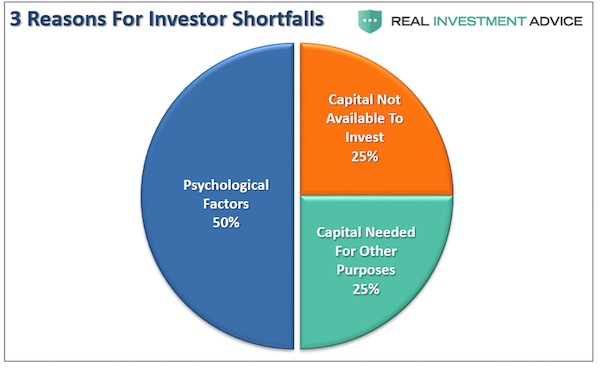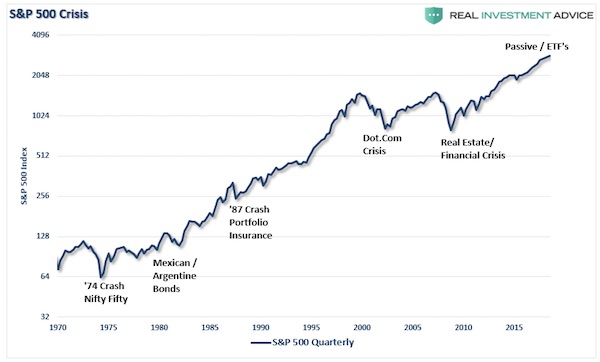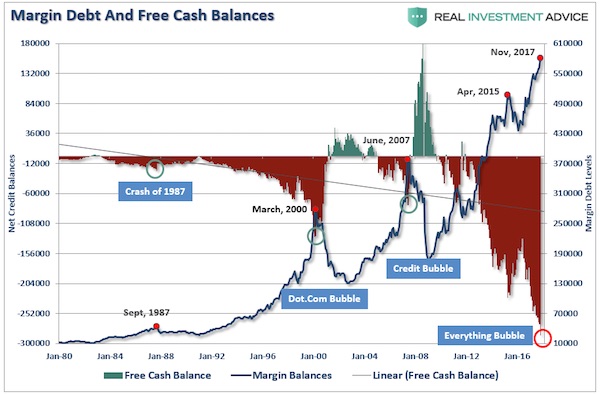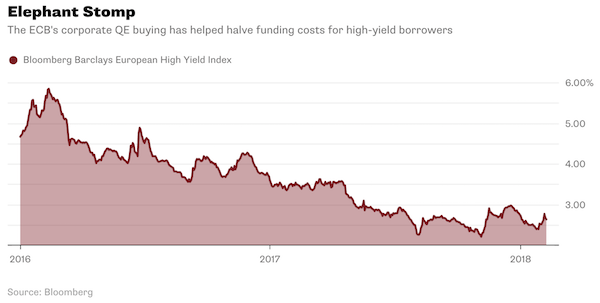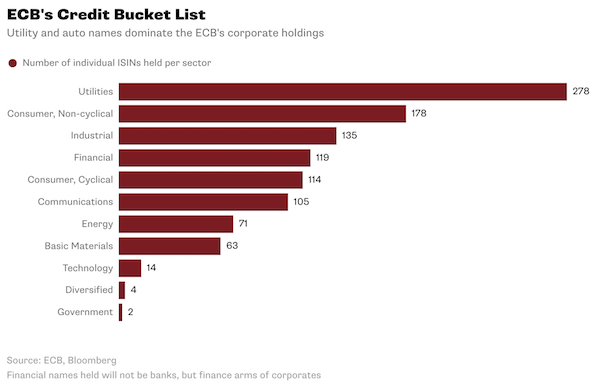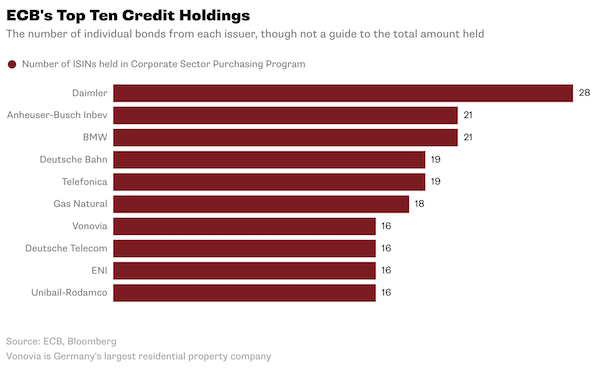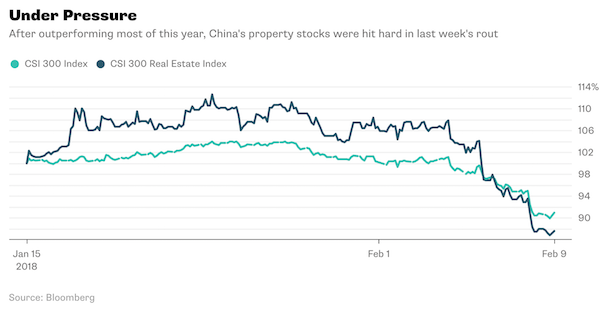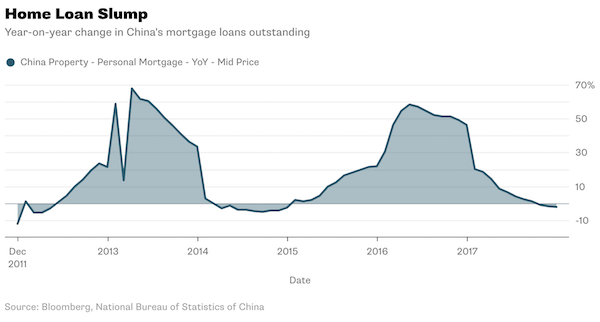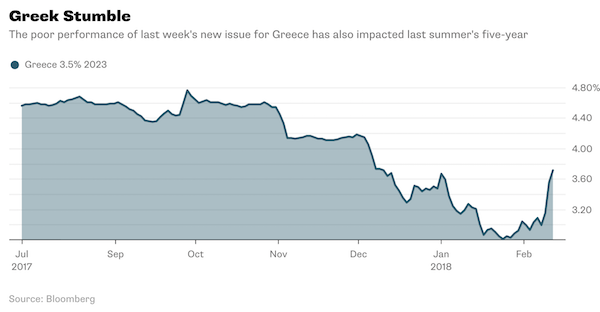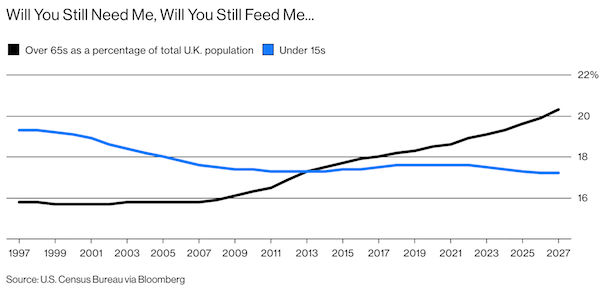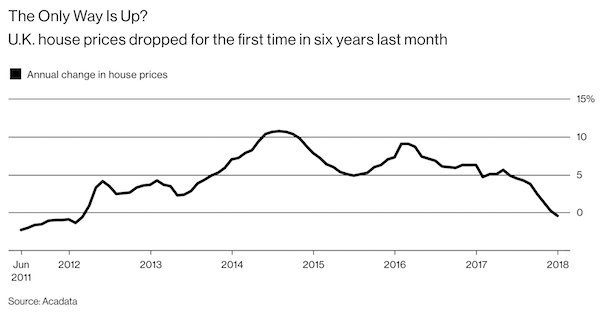
Willem de Kooning Door to the river 1960



Dowd
Using the conservative numbers from our vaccine damage report for US and assuming globally that 5 billion were vaccinated here are extrapolated estimated human costs globally:
✅Deaths: ~5 million
✅Disabilities: ~46.5 million
✅Injuries: ~900 million
https://t.co/JDzfLw3NKG… pic.twitter.com/mDOwLdR0Pm— Edward Dowd (@DowdEdward) March 31, 2023

“Gates, the WHO, a ton of these universities: they’re all talking about including mRNA vaccinations as part of the food. They’re gonna modify the genes of these foods to make them mRNA vaccines,” warned attorney @TomRenz. Missouri HB 1169 seeks to counter such an effort. It’s been described as “one of the most controversial bills in history,” but all it is – is a labeling bill. If a food product is a gene therapy product, you have every right to know. So, if this bill gets passed, it’s a major victory not just for our well-being — but also for discovery, too.
https://twitter.com/i/status/1641990297142829056



Trump team
https://twitter.com/i/status/1641827495426113536

Tucker Trump
TUCKER: Trump's Real Crime: Waging War against Globalism pic.twitter.com/Ly0r8gUSUl
— Jack Poso 🇺🇸 (@JackPosobiec) April 1, 2023

Beck
https://twitter.com/i/status/1641603632100524035



Ursula
From the woman who said this … https://t.co/QEowvszTTF pic.twitter.com/v5n224nHZH
— dimitri (@dimitrigalanis) March 31, 2023

Kneissl
The West is looking for a way out of the war with Russia. From the war the West entered into out of stupidity and greed. And now they're stuck in this shit and don't know how to get out of it. Former Austrian Foreign Minister Karin Kneissl is also https://t.co/Eh64gCqE4l… pic.twitter.com/fZHXsCRF4h
— Victor vicktop55 (@vicktop55) March 31, 2023




Western media refuse to report on the major changes happening. How does that serve their audience?
• The Capital of the Multipolar World: A Moscow Diary (Pepe Escobar)
How sharp was good ol’ Lenin, prime modernist, when he mused, “there are decades where nothing happens; and there are weeks where decades happen”. This global nomad now addressing you has enjoyed the privilege of spending four astonishing weeks in Moscow at the heart of an historical crossroads – culminating with the Putin-Xi geopolitical game-changing summit at the Kremlin. [..] The initial gut feeling the day I arrived, after a seven-hour walk under snow flurries, was confirmed: this is the capital of the multipolar world. I saw it among the West Asians at the Valdai. I saw it talking to visiting Iranians, Turks and Chinese. I saw it when over 40 African delegations took over the whole area around the Duma – the day Xi arrived in town. I saw it throughout the reception across the Global South to what Xi and Putin are proposing to the overwhelming majority of the planet.
In Moscow you feel no crisis. No effects of sanctions. No unemployment. No homeless people in the streets. Minimal inflation. Import substitution in all areas, especially agriculture, has been a resounding success. Supermarkets have everything – and more – compared to the West. There’s an abundance of first-rate restaurants. You can buy a Bentley or a Loro Pianna cashmere coat you can’t even find in Italy. We laughed about it chatting with managers at the TSUM department store. At the BiblioGlobus bookstore, one of them told me, “We are the Resistance.”
By the way, I had the honor to deliver a talk on the war in Ukraine at the coolest bookshop in town, Bunker, mediated by my dear friend, immensely knowledgeable Dima Babich. A huge responsibility. Especially because Vladimir L. was in the audience. He’s Ukrainian, and spent 8 years, up to 2022, telling it like it really was to Russian radio, until he managed to leave – after being held at gunpoint – using an internal Ukrainian passport. Later we went to a Czech beer hall where he detailed his extraordinary story. In Moscow, their toxic ghosts are always lurking in the background. Yet one cannot but feel sorry for the psycho Straussian neocons and neoliberal-cons who now barely qualify as Zbig “Grand Chessboard” Brzezinski’s puny orphans.
In the late 1990s, Brzezinski pontificated that, “Ukraine, a new and important space on the Eurasian chessboard, is a geopolitical center because its very existence as an independent state helps transform Russia. Without Ukraine, Russia ceases to be a Eurasian empire.” With or without a demilitarized and denazified Ukraine, Russia has already changed the narrative. This is not about becoming a Eurasian empire again. This is about leading the long, complex process of Eurasia integration – already in effect – in parallel to supporting true, sovereign independence across the Global South.

This is hilarious. Blinken and Jean-Pierre tell everyone to “depart immediately”, and then “National Security Council spokesperson” Kirby “explained Washington was not actually calling upon all Americans to literally leave Russia and was not encouraging news outlets to withdraw their correspondents from the country.”
Leave, but not literally?! Do note Russia says they caught Gershkovich “red-handed”…
• US Urges Americans To Leave Russia ‘Immediately’ (RT)
Washington has called upon Americans who are traveling to or residing in Russia to leave the country “immediately” in the aftermath of the arrest of Wall Street Journal (WSJ) correspondent Evan Gershkovich. While Moscow said he was caught “red-handed” trying to obtain state secrets, the US has condemned the arrest as an assault on “press freedom.” US Secretary of State Antony Blinken said Washington was “deeply concerned” about the development, adding that “in the strongest possible terms, we condemn the Kremlin’s continued attempts to intimidate, repress, and punish journalists and civil society voices.”
“We reiterate our strong warnings about the danger posed to US citizens inside the Russian Federation. US citizens residing or traveling in Russia should depart immediately,” the top diplomat said in a statement. A similar message was conveyed by the White House, with Press Secretary Karine Jean-Pierre stating that the “targeting of American citizens by the Russian government is unacceptable.” “We also condemn the Russian government’s continued targeting and repression of journalists and freedom of the press,” she added, urging Americans to “heed the US government’s warning to not travel to Russia” or leave should they happen to already be in the country.
The call was somewhat watered down by US National Security Council spokesperson John Kirby, who explained Washington was not actually calling upon all Americans to literally leave Russia and was not encouraging news outlets to withdraw their correspondents from the country. Gershkovich, a WSJ correspondent who covers news from Russia, Ukraine, and the former USSR, was detained in the city of Ekaterinburg on suspicion of espionage, Russia’s Federal Security Service (FSB) announced earlier in the day. According to Kremlin spokesman Dmitry Peskov, the journalist was caught “red-handed” while trying to obtain Russian state secrets.

“Apparently, the collective West’s thinking is that children, in particular, orphans, are better left in the war zone.”
• Nebenzya: Without Russia the UN Will Lose Its Meaning (TASS)
Will the informal meeting of the UN Security Council on the “Arria formula” on children evacuated from the Ukrainian conflict zone touch upon the issue of their return, as you mentioned at the press conference? The “Arria formula” meeting is designed to bring to the international community first-hand information about evacuated children from the war zone in Donbass and Ukraine and dispel the false narrative spread by the Western media about the alleged “abductions” of children from Ukraine and attempts to “destroy their identity.” I would like to emphasize once again that we are talking about evacuation from the war zone in full compliance with the obligations under International Humanitarian Law, as well as the Convention on the Rights of the Child. Apparently, the collective West’s thinking is that children, in particular, orphans, are better left in the war zone.
From the beginning of the special military operation to the present, millions of people have been evacuated in this way, including children, who in the overwhelming majority of cases arrived on the territory of Russia with their parents, guardians and trustees. Only a small number of evacuated children were in institutions for orphans and children left without parental care. Children who were pupils at institutions located within the administrative boundaries of the DPR and LPR at the time of recognition of their independence by the Russian Federation were transferred under guardianship. Great attention was paid to the placement of minors in the families of blood relatives living in Russia. The Westerners’ use of the term “adoption” in this context is deliberately misleading. In reality, we are talking about temporary preliminary guardianship or temporary guardianship.
The main goal is for children to be in families, not orphanages. This form was chosen specifically taking into account the potential reunification of minors with their blood relatives, if any are found. The Russian side does not prevent children from maintaining contact and communication with their relatives and friends, regardless of their place of residence. To simplify the reunification process, parents can seek help finding their child directly from the office of the Russian Commissioner for Children’s Rights. To this day, with the participation of the Commissioner for Children’s Rights, 15 children from 8 families have already been reunited with their relatives. We have held a number of meetings with representatives of the Regional Delegation of the International Committee of the Red Cross in the Russian Federation and the Republic of Belarus, who also decided to facilitate the reunification of children with parents outside the Russian Federation and Ukraine (in Poland, Portugal and Norway), within the framework of the organization’s mandate.

Jeremy Loffredo and Max Blumenthal for the Grayzone.
• ICC’s Putin Arrest Warrant Based On US-funded Report That Debunked Itself (GZ)
On March 17, the Prosecutor General of the International Criminal Court, Karim Khan, introduced an arrest warrant for Russian President Vladimir Putin and his Commissioner for Children’s Rights, Maria Llova-Belova. The warrant, which accused Putin and Lolva-Belova of conducting the “unlawful deportation” of Ukrainian children to a “network of camps” across the Russian Federation, inspired a wave of incendiary commentary in the West. US Sen. Lindsey Graham, perhaps the most aggressive cheerleader in Congress for war with Russia, proclaimed: “The ICC has an arrest warrant for Putin because he has organized the kidnapping of at least 16,000 Ukrainian children from their families and sent them to Russia. It is exactly what Hitler did in World War II.” CNN’s Fareed Zakaria echoed Graham, declaring the ICC warrant revealed that Putin “is in fact following parts of Hitler’s playbook.”
The ICC prosecutor appeared to have based his arrest warrant on research produced by Yale University’s Humanitarian Research Lab (HRL). Yale HRL’s work was funded and guided by the State Department’s Bureau of Conflict and Stabilization Operations, an entity the Biden administration established in May 2022 to advance the prosecution of Russian officials. During an interview with CNN’s Anderson Cooper, Yale HRL’s executive director, Nathaniel Raymond, claimed his report provided proof that “thousands of children are in a hostage situation.” Invoking the Holocaust, Raymond asserted, “We are dealing with the largest network of children camps seen in the 21st century.”
Yet in an interview with Jeremy Loffredo, the co-author of this report, and in his own paper for Yale HRL, Raymond contradicted many of the bombastic claims he made to the media about child hostages. During a phone conversation with Loffredo, Raymond acknowledged that “a large amount” of the camps his team investigated were “primarily cultural education – like, I would say, teddy bear.” Yale HRL’s report similarly acknowledges that most of the camps it profiled provided free recreational programs for disadvantaged youth whose parents sought “to protect their children from ongoing fighting” and “ensure they had nutritious food of the sort unavailable where they live.” Nearly all of the campers returned home in a timely manner after attending with the consent of their parents, according to the paper. The State Department-funded report further concedes that it found “no documentation of child mistreatment.”
Yale HRL based its research entirely on Maxar satellite data, Telegram postings, and Russian media reports, relying on Google translate to interpret them and at times misrepresented the articles in its citations. The State Department-funded unit conceded that it performed no field research for its paper, stating that it “does not conduct ground-level investigations and therefore did not request access to the camps.” Unlike the Yale investigators who inspired the ICC’s arrest warrant, Loffredo gained unfettered access to a Russian government camp in Moscow that houses youth from the war-torn Donbas region. Though it is precisely the kind of center that Yale HRL – and by extension, the ICC – have portrayed as a “re-education camp” for Ukrainian child hostages, he found a hotel full of happy campers receiving free classical music lessons in their native Russian language from first-class instructors – a “teddy bear,” as Raymond called it.
At The Donbas Express music camp located just outside of Moscow, youth told Loffredo they were grateful to have found refuge from the Ukrainian army’s years-long campaign of shelling and besiegement of their homeland. By fleeing the war in Donbas, these children had escaped a nightmarish military conflict for which Yale HRL and the ICC have demonstrated little to no concern.

The UN needs Russia, and Europe needs Russia.
• Europe Needs Russia To Survive – Lukashenko (RT)
The world is currently witnessing “the destruction of Europe,”Belarusian President Alexander Lukashenko told the national parliament in an annual address on Friday. The continent is losing its independence because Western nations are turning into US satellites, the Belarusian leader believes. Only uniting with Moscow could stop that, he said. “The policy of the European Union, both foreign and internal, has become totally subordinated to US interests,” Lukashenko said, as he accused European leaders of lacking the political will to make their nations truly independent in international affairs. According to Lukashenko, the US has long been pursuing a policy of economic suppression against the EU. The emergence of Europe’s own competitive currency, the euro, has prompted the US to start “suffocating” its “subjects,” he stated.
Washington is also using the ongoing conflict in Ukraine to “stall” Europe, the Belarusian president added. The only way out for Europe is to join forces with Russia, Lukashenko said. “Europe can survive only together with us, primarily with Russia,” he told the lawmakers. “If Russia and Europe unite, it will be a powerhouse no one can beat.” The statements were made as Russia unveiled its revised foreign policy concept. The document, which outlines the nation’s strategic priorities, called the “anti-Russian policy” of the US a major threat to international peace. At the same time, Moscow maintained that it did not consider Western nations to be adversaries and was ready for dialogue and cooperation on the basis of mutual respect.
The developments came amid the ongoing military conflict between Russia and Ukraine, in which the EU followed the US in supporting Kiev with both military and financial aid while slapping Moscow with unprecedented sanctions. The EU has also tried to get rid of Russian oil and gas imports, which has negatively impacted European nations that were previously heavily dependent on Russian energy imports, like Germany. Although the German government announced in January that the country would narrowly avoid a recession this year, credit ratings agency Fitch predicted earlier this month that the German economy would enter recession by late 2023.

“We will take our cue from Xi, who sees the changes taking place as a sign of necessary renewal. And we will manage the costs somehow.”
• China’s Xi Is Right: Changes Not Seen For A Century (Lukyanov)
The second half of the twentieth century and the beginning of the twenty-first have been very comfortable times for the world as a whole. In terms of the overall geopolitical arrangement, we saw first a rather strong balance based on bipolar confrontation, then a relatively stable hegemony. But there has also been progress in the social and economic senses. Many positive changes took place after the Second World War. The welfare state model spread across most of Europe, and even the United States, with its more modest traditions in this sphere, made great strides. Similar changes also took place on the other side of the Iron Curtain, with a focus on improving living standards and consumer diversity added to the traditional priorities of defence. In the Third World, as colonial possessions were disappearing there was an enthusiasm for freedom and a belief in the future. Even if many of the new states carried little heft.
The end of the Cold War brought with it new expectations. The ‘free world’ enjoyed a ‘peace dividend’ (reduced military spending) and the opportunity to extend its economic expansion into previously closed areas. The former socialist countries took advantage of the opening up in every way they could and – at least for individuals – there were more opportunities than before. This was often to the detriment of state capacity, but it was believed that this was the general trend – the individual was more important. Eventually, the former Third World tried to take advantage of both. Many countries in Asia, for example, have benefited greatly from globalization. Meanwhile, a lot of people from states which have underachieved have chosen to move to wealthier locations.
Both periods had one thing in common – a widespread feeling that tomorrow would be better than yesterday. However, now, just like that, it’s over. At present, it’s commonplace to accuse political elites of unprofessionalism and bad governance. Without making excuses for individual politicians, the current generation – which grew up in these very favourable conditions – has had to deal with shifts of a tectonic nature. The exhaustion of the previous financial model of the capitalist economy, the communications revolution (one of the main results of which is the mental divide between the mature and the young), technological change with inevitable consequences for the labour market, an ageing population in the developed countries, and a rejuvenation in previously troubled states is creating a completely different international environment.
Moreover, the interconnectedness of the planet does not allow anyone to isolate themselves from the general instability, which spills over national borders in various forms. Moreover, as was the case a century ago, the growth of socio-political activism among the masses is leading to the radicalization of political groups. And with traditional parties and ideologies in deep crisis, radicalization can take quite archaic forms. We will take our cue from Xi, who sees the changes taking place as a sign of necessary renewal. And we will manage the costs somehow.

“America at the Apex.”
• From Iraq War To Arming Ukraine. Where Will This Lead? (Sushenstov)
This year’s twentieth anniversary of the illegal Iraq invasion paradoxically coincided with major international events. Xi Jinping, General Secretary of the Central Committee of the Communist Party of China, was in Moscow on the day, while a Russia-Africa Parliamentary Forum opened at the same time. In 2003, at the height of its power, the US proclaimed its “unipolar moment” in which it would dominate unchallenged, needing no allies and tolerating no objections from adversaries. History, it was believed, had a single purpose, and they would stop at nothing to achieve it. Indeed, American military, political and economic dominance seemed total at the time, echoing the sentiments of Henry Kissinger, who a few years earlier had written that “America at the Apex.”
Twenty years later, we are witnessing the flowering of multi-polarity: in Moscow, the General Secretary of the Central Committee of the Communist Party of China talking to the Russian President, two countries contributing to a change the world has not seen in a hundred years. This transience of world history shows how quickly historical cycles change, but it is also important that the US itself, through its actions in different parts of the world, is accelerating its course. One of the most important strategic mistakes made by Washington was the invasion of Iraq. Based on a false pretext and deliberately misleading the international community, it led to a series of serious war crimes, a catastrophic civil war, the shattering of Iraqi statehood and significant repercussions for the entire Middle East.
Just a few years of American presence in Iraq resulted in huge numbers civilian deaths, indiscriminate use of force, and the destruction of several cities, including Mosul. During the evacuation of the Russian embassy during the 2003 US invasion, a convoy of diplomats came under US fire and several were injured. US private military contractors, who at one point had the same presence in the country as official troops, committed a number of war crimes. The abuse of prisoners by the US military at Abu Ghraib prison near Baghdad has been well documented. When the International Criminal Court raised the question of the responsibility of American citizens being charged over offenses in Afghanistan and Iraq, the US responded by saying that it would prosecute the judges who raised the issue and that they should withdraw their initiatives immediately. Arguably the greatest crime of the US in Iraq has been to create a civil war that has resulted in a terrible number of casualties with estimates ranging from 600,000 to one million.

“..a number of provisions of China’s plan were unlikely to materialize right away, as Kiev was unable to disobey the West.”
• Comparing Beijing, Minsk Peace Plans In Ukraine Inappropriate – Kremlin (TASS)
It will be inappropriate to compare the two sets of ideas for a peace settlement in Ukraine, proposed by Chinese President Xi Jinping and Belarusian President Alexander Lukashenko, Russian Presidential Spokesman Dmitry Peskov told the media on Friday. “We believe it will be hardly appropriate to compare these two sets of ideas, I mean the plan that was voiced by [Chinese] President Xi [Jinping] and the one that [Belarusian] President Alexander] Lukashenko has just mentioned,” the Kremlin spokesman said. He also noted that Russian President Vladimir Putin had discussed with Xi the plan proposed by China and some of its individual provisions. At the same time, according to Peskov, a number of provisions of China’s plan were unlikely to materialize right away, as Kiev was unable to disobey the West.
“The plan [peace plan proposed by China] has not been put on hold, but there are certain provisions that, so to say, cannot be implemented for now due to the inability of the Ukrainian side to disobey its patrons, its commanders,” Peskov said. “These commanders, as we know, are not in Kiev. They insist that the war should continue,” he added. On March 20-22, Xi Jinping paid a state visit to Moscow. Among other things he discussed with Russian President Vladimir Putin China’s plan for a peace settlement in Ukraine. The Russian leader said afterwards that many of the provisions of that plan were in line with Russia’s own approaches and could be used as the basis for a peace settlement, when the West and Kiev were ready for it.
Earlier on Friday, Lukashenko, in his address to the people and parliament of Belarus, called for declaring truce in Ukraine “without the right to move and regroup troops on both sides and without the right to move weapons and ammunition, manpower and equipment.” Lukashenko explained that in such a situation, “if the West once again tries to use the pause to deceitfully strengthen its positions, Russia will be obliged to use the entire strength of its military-industrial complex and the army to prevent an escalation of the conflict.”

Nebenzya comes to the front. Yet another erudite spokesman.
• West Can’t Sweep Nord Stream Sabotage Under The Carpet – Diplomat (TASS)
The West will not be able to “sweep under the carpet” the topic of sabotage on the Nord Stream and Nord Stream 2 gas pipelines, Russian Permanent Representative to the United Nations Vasily Nebenzya said in an exclusive interview with TASS. Russia will take the chair of the UN Security Council in April. According to the diplomat, when voting on March 27 in the UN Security Council on a draft resolution on the establishment of an international commission to investigate the circumstances of sabotage, the United States and its allies “preferred to hide behind the “front” of convenient national investigations in Germany, Denmark and Sweden.” “The tactics of our Western colleagues do not surprise us – after all, as we once again became convinced from the recent investigation of the autoritative American journalist Seymour Hersh, all the evidence points to who is behind the explosions on the Nord Stream,” Nebenzya said.
“The behavior of the United States and Western countries during the discussion of this topic at the Council platform, including the eloquent silence of the American delegates in response to the reminder of the threats against the gas pipeline from the American leadership, only reinforces these suspicions. But unfortunately for their Western colleagues they will not be able to “sweep under the carpet” this topic. We will continue to strive to ensure that the true circumstances of what happened are established, and all those responsible are punished,” the diplomat stressed.
Nebenzya noted that during the discussion of this initiative, Russia’s representatives showed “the most flexible and responsible approach, and a balanced text was put to a vote, taking into account the concerns expressed by states.” “Its adoption was supported by such major players as China and Brazil. However, the United States and its allies, of course, did not come out in favor,” the diplomat stated. He noted that “investigations in Germany, Denmark and Sweden, whose objectivity is questionable” for Russia “given that the authorities of these countries, without any clear reason, refused to cooperate” with the Russian competent authorities.
From the speech of the representative of Russia Nebenzya at the meeting of the UN Security Council, convened at the initiative of the United States on the issue of the deployment of Russian nuclear weapons in Belarus https://t.co/aBa5HzEVaa pic.twitter.com/mdsFWMzc7Z
— Victor vicktop55 (@vicktop55) March 31, 2023

The fields are mud. Russia is not in a hurry.
• Russian Needs Major Effort In Bakhmut Despite Heavy Kiev Losses – Wagner (TASS)
The Ukrainian military is suffering serious casualties in Artyomovsk (called Bakhmut in Ukraine) but Russian troops still have to take enormous efforts in that area, Yevgeny Prigozhin, founder of the Wagner private military company, said on Friday. “No, the Ukrainian army is not fleeing anywhere. The Ukrainian army is engaged in bloody battles and is defending Artyomovsk at the expense of serious casualties,” the Wagner press office quoted Prigozhin as saying on its Telegram channel. “Another important aspect that should be mentioned is the need to hold the flanks,” he stressed. “Today we need to concentrate efforts in the city because this is an enormous amount of combat work to do. The flanks should not let us down and allied units should hold them,” Prigozhin said.
Russian forces “are moving forward and taking every building, every building entrance and every garage between buildings,” he said. “In Bakhmut, there are about 800 high-rise buildings. If we tell about each [building] entrance, you will be tired of hearing it. When we take Bakhmut, then we will talk about that,” the Wagner founder said. Artyomovsk is located on the Kiev-controlled part of the Donetsk People’s Republic and is a major transportation hub for the Ukrainian army’s supplies in Donbass. Fierce fighting for the city is underway.
Yan Gagin, military-political expert and adviser to the acting head of the Donetsk People’s Republic (DPR), said on March 22 that the city had been practically sealed off by Russian forces and all approaches to Artyomovsk were under Russian artillery control. He earlier said that Russian forces controlled about 70% of the city. Acting DPR Head Denis Pushilin has repeatedly said that there is no evidence of the Ukrainian army’s plans to leave Artyomovsk. Meanwhile, Kiev claims that the city’s defense will be bolstered. Ukrainian President Vladimir Zelensky earlier said that Ukrainian troops would not surrender Artyomovsk and would fight for it as long as they could.

“Russia’s foreign trade grew by more than 8% last year, while inflation is expected at around 4% this year. This comes as “other Europeans” are trying “to convince everyone of the imminent collapse of the Russian economy..”
• EU Underestimates Russian Economic Capacity – Orban (RT)
Western countries are making a mistake by underestimating Russia’s ability to adapt to sanctions, Hungarian Prime Minister Viktor Orban stated on Friday. According to Orban, Moscow demonstrated it could adjust its economy to restrictions following the first wave of Western sanctions, introduced after Crimea voted to secede from Ukraine and to reunify with Russia. “I remember well that in 2015 we exported a lot of food products to Russia…In three years, Russia has built its agriculture and food industry to such an extent that if Hungary wanted to export food there today, it would either not work or be much more difficult than before the imposition of sanctions,” the politician told Kossuth Radio.
The Russian economy has shown its resilience to sanctions and “underestimating” the ability of a country as “huge” as Russia to adapt to restrictions is a “fatal mistake,” Orban added. The Hungarian premier is a vocal critic of the bloc’s approach to the conflict in Ukraine, and has repeatedly argued that sanctions are hurting the EU more than they hurt Russia. Earlier, Orban said that the punitive measures “were supposed to hit Russia, but hit Europe.” The anti-Russia measures have had a devastating impact on Budapest, by sending energy prices soaring and raising costs throughout the economy.
According to the prime minister, EU sanctions introduced against Russia over its military operation in Ukraine have cost Hungary’s economy €10 billion but have failed to stop the conflict. Meanwhile, Russia has survived the loss of Western markets and its economy is developing in a new way, with GDP expected to grow as soon as the second quarter of this year, President Vladimir Putin said earlier in March. Russia’s foreign trade grew by more than 8% last year, while inflation is expected at around 4% this year. This comes as “other Europeans” are trying “to convince everyone of the imminent collapse of the Russian economy,” even though EU inflation rates are higher, the Russian president noted.

“..a wrapped gift to the oligarchs who buy our shares.”
• Norway’s Wealth Fund Unable To Withdraw Funds From Russia (RT)
Norway’s $1.3 trillion sovereign wealth fund, one of the world’s largest investors, is still unable to divest its holdings in Russia as the custodian bank is under Western sanctions, the Norwegian Finance Ministry said on Friday. The Oslo-based Government Pension Fund is the world’s biggest owner of publicly traded companies with a portfolio of about 9,000 stocks. It has around 0.2% of its assets invested in Russia. “The market for trading in Russian financial instruments is still subject to comprehensive sanctions and has not been normalized as of March 2023,” the ministry said in a statement. The Nordic country’s authorities decided to sell Russian stocks right after the start of the military operation in Ukraine.
The fund held shares in 47 Russian companies and government bonds valued at 25 billion Norwegian crowns ($2.4 billion) at the end of 2021. However, at that time the fund’s management was resisting pressure to shed Russian assets, with CEO Nicolai Tangen saying it would be “a wrapped gift to the oligarchs who buy our shares.” Since then, Western nations have imposed sweeping sanctions against Russia which now prevent the Norwegian pension fund from divesting its assets. “The concrete and practical problem is that the custodian bank that we use is under sanctions, and can’t assist us with settlement of transactions, and neither with voting on shares” in Russian companies, deputy CEO, Trond Grande said in January.
The situation is “deadlocked” he noted, adding that “there is no way we can either sell or buy or vote on these shares.” Details of the fund’s portfolio at the end of 2022 released in January revealed a loss of about $2.8 billion from Russian holdings, compared to their value at the end of 2021. Meanwhile, Russia has repeatedly warned that sanctions imposed on the country would backfire. Earlier this month, Finance Minister Anton Siluanov said Western nations would “suffer from their own restrictions” while being “disappointed” by Russia’s resilience.

A pretty crazy plan, if you ask me. Do they really think Russia will let armed troops wander around?
• ‘Peacekeepers’ Deployed To Ukraine Without Russia’s Consent – Medvedev (TASS)
So-called peacekeepers, whose deployment to Ukraine under NATO auspices is currently being mooted in Europe, will be eliminated should any appear at the frontlines without Russia’s consent, Russian Security Council Deputy Chairman Dimity Medvedev said on Friday. “It is obvious that such ‘peacekeepers’ are our unvarnished enemies, wolves in sheep’s clothing. They would be a legitimate target for our armed forces should they be deployed at the frontlines, without Russia’s consent, with weapons in hand and presenting a direct threat to us,” Medvedev wrote on his Telegram channel. According to Medvedev, “those ‘peacekeepers’” must be destroyed mercilessly as they are the “soldiers of the enemy.”
“They will die in the course of combat,” the deputy chairman of the Russian Security Council stated with confidence. “Is Europe prepared for a long line of coffins holding its ‘peacekeepers’?” he asked rhetorically. “Their (NATO member countries’ – TASS) true intentions are crystal clear – to impose a peace that is favorable to them on the line of contact from a position of strength and to station their ‘peacekeeping’ troops in Ukraine, who would be armed with assault rifles and riding on tanks, and would be wearing some sort of blue helmets with yellow stars,” the deputy chairman of the Russian Security Council said.
Medvedev recalled that the potential results of such actions can be seen in the “history of operations conducted by the United States and its allies in various regions of the world, [including] the tragedies of Korea, Vietnam, Yugoslavia, Iraq, Afghanistan and numerous African countries.” “It is clear that the so-called NATO peacekeepers are simply preparing to enter the conflict on the side of our enemies in order to make hay out of this, bringing the situation to the point of no return, and to unleash that World War III they claim to be so afraid of.”.

“It’s a little early to assess the knock-on effects of the Left’s ecstatic Trumpgasm..”
• Did They Light Up a Cigarette Afterward? (Kunstler)
The New York Times enjoyed its long-delayed tantric Trumpgasm so much today that it rolled out the full-page banner headline format usually reserved for the commencement of world wars. (They took the banner down before seven o’clock this morning.) For many of the cat-ladies employed as “reporters” at the once-august paper, it was the first Trumpgasm they’ve ever experienced in a lifetime of emotional displacement, over-eating, and furious knitting of pink polyester hats for the crusade to root out patriarchal wickedness. This fulfillment of a years-long psychodrama, starring the feared and loathed occult persona of a gold-coiffed “Daddy” figure who once presided in the political household, came at the hands of dragon-slayer Manhattan DA Alvin Bragg, archetype of the many long-oppressed victims worked to death in the bilges of our slave ship of state — now turned righteous Woke deliverer of cosmic vengeance!
This, of course, is brought to you by the party of hoaxes, flimflams, and mandated death shots, so it’s amusing here on the sidelines to see The Times’s op-ed writers squirm with post-coital pleasure underneath the full-page Trumpgasmic headline. The lead editorial declares: “Even Donald Trump Should Be Held Accountable”— overlooking the utter absence of accountability that has been the norm in every recent insult to the nation’s dignity from wholesale and repeat election fraud, to six years of lawless depravity in the FBI, to overt support of Antifa and BLM street havoc, to the forced, deceitful administration of deadly “vaccines.” “How a President’s Arrest Can Strengthen a Democracy,” honorary cat-lady Nicholas Kristoff opined, repeating the bad-faith trope that his legions of Wokery have an interest in political rectitude — when, in fact, they are solely preoccupied with coercing, censoring, cancelling, persecuting, punishing, and defenestrating anyone who objects to their grifts and hustles.
“Only love and a leap of faith can break through distrust. That is why a credible form of patriotism is so important right now,” explained The Times’s official Superintendent of Platitudes, David Brooks, to soothe consciences grated by this loutish gambit to shove a political adversary off the game board in advance of an election. “Joe Biden may not be your cup of tea,” Mr. Brooks summed up his civics lesson, “but he’s restored sanity, effectiveness and decency to the White House.” [..] It’s a little early to assess the knock-on effects of the Left’s ecstatic Trumpgasm. A common theme flying across the Web is that Alvin Bragg’s jerry-rigged case will only make a martyr of Mr. Trump, neatly illustrating and personifying the government’s apparent war against its own citizens — making it clear that they will stop at nothing and no one to enforce the corrupt bureaucracy’s will against the public — and that the net result will be to ensure Mr. Trump’s reelection in 2024.

There are tons of Trump-haters in positions of power. A new one very day.
• Manhattan Assistant DA Nukes Twitter Account After Anti-Trump Bias Exposed (ZH)
Less than 24 hours after the Gateway Pundit exposed Manhattan Assistant District Attorney Meg Reiss’ public hatred of Donald Trump on Twitter, Reiss – who’s been accused of masterminding the case against the former president, locked and then deleted her account. As TGP documented Thursday morning, Reiss ‘liked’ several anti-Trump tweets, exposing her absolute bias against the man her office is about to indict over hush money paid to former adult actress Stormy Daniels (real name Stephanie Clifford). Of note, Trump’s alleged payment to Daniels through former lawyer Michael Cohen would normally be a misdemeanor which falls outside the statute of limitations. Not for Bragg’s office. Not for Reiss. For comparison, Hillary Clinton was allowed to pay a fine to the FEC for actual election interference with the Steele Dossier hoax her campaign paid for and then boosted throughout the media.
As TGP further notes; The Institute for Innovation in Prosecution (IIP) which is a research center out of the Soros-funded John Jay College has tagged her dozens of times. Reiss served as the Executive Director for the IIP.” DA of Brooklyn Eric Gonzalez also tagged Reiss, who previously served in the Brooklyn District Attorney’s Office as the Chief of Social Justice, on several occasions too. Most of these tweets Reiss liked were while she served in the Brooklyn District Attorney’s Office as the Chief of Social Justice and as she served as the director of the IIP. However, her political bias extends into her time at the Manhattan DA’s office as well. Earlier in the year as she was serving as Manhattan’s Chief Assistant District Attorney she retweeted a video of Democrat representative Hakeem Jeffries giving a speech at the State of the Union. At one point during the video Reiss shared, Rep. Jeffries says Democrats will put “Maturity over Mar-a-Lago”.

“Bragg ran on his pledge to bag Trump and Pomerantz ramped up the political base to demand an indictment for a crime. It really did not matter what that crime might be.”
• The Trump Indictment: Making History in the Worst Possible Way (Turley)
Manhattan District Attorney Alvin Bragg has finally made history. He has indicted former President Donald Trump as part of an investigation, possibly for hush money payments. We are all waiting to see the text of the indictment to confirm the basis for this unprecedented act. But history in this case — and in this country — is not on Bragg’s side. The only crime that has been discussed in this case is an unprecedented attempt to revive a misdemeanor for falsifying business documents that expired years ago. If that is still the basis of Thursday’s indictment, Bragg could not have raised a weaker basis to prosecute a former president. If reports are accurate, he may attempt to “bootstrap” the misdemeanor into a felony (and longer statute of limitations) by alleging an effort to evade federal election charges.
While Trump will be the first former president indicted, he will not be the last if that is the standard for prosecution. It is still hard to believe that Bragg would primarily proceed on such a basis. There have been no other crimes discussed over months, but we will have to wait to read the indictment to confirm the grounds. What we do know is the checkered history leading to this moment. The Justice Department itself declined to prosecute the federal election claim against Trump. There was ample reason to decline. The Justice Department went down this road before and it did not go well. They tried to prosecute former Democratic presidential candidate John Edwards on stronger grounds (which I also criticized) and failed. In that case, campaign officials and donors were directly involved in covering up an affair that produced a child.
At the time, Edwards’ wife was suffering from cancer. The prosecution still collapsed. The reason is that you need to show the sole purpose for paying hush money in such a scandal. For any married man, let alone a celebrity, there are various reasons to want to bury a sexual scandal. For Trump, there was an upcoming election but he was also married man allegedly involved in an affair with a porn star. He was also a television celebrity who is subject to the standard “morals clause” that’s triggered by criminal conduct or conduct that brings “public disrepute, scandal, or embarrassment.” These clauses are written broadly to protect the news organizations and their “brand.”
Various presidents from Warren Harding to Bill Clinton have been involved in efforts to hush up affairs. They also had different reasons for burying such scandals, including politics. However, scandals are messy matters with a complex set of motivations. Showing that Trump only acted with the future election in mind — rather than his current marriage or television contracts — is implausible. That was likely the same calculus made by the Justice Department. That is also why the use of the “bootstrapping” theory as the primary charge would be an indictment of the prosecution and its own conduct. The office has already been tarnished by the conduct of the prosecutors who pushed this theory.
When Bragg initially balked at this theory and stopped the investigation, two prosecutors, Carey R. Dunne and Mark F. Pomerantz, then resigned from the Manhattan DA’s office. Pomerantz then did something that some of us view as a highly unprofessional and improper act. He published a book on the case against Trump — a person who was still under investigation and not charged, let alone convicted, of any crime. It worked. Bragg ran on his pledge to bag Trump and Pomerantz ramped up the political base to demand an indictment for a crime. It really did not matter what that crime might be.

Save the world by destroying society. Sounds like a plan.
• Stirrings of Euro Eco-rebellion (Higgie)
It’s not often that a development in north-western Tasmania looms large on the international stage. But a site near Burnie is set to be a key part of Germany’s resistance to Green pressure to abandon internal combustion engine (ICE) vehicles in favour of electric cars. Porsche is the driving force behind the A$1 billion investment in the HIF (Highly Innovative Fuels) plant now in development – one of three such e-fuel plants globally – as part of a move to mass production by 2026. E-fuel, not yet commercially available, is a combination of hydrogen with carbon dioxide captured from the atmosphere which ICE vehicles can run on. While the use of e-fuel produces carbon emissions, these are offset according to producers by the CO2 sucked from the atmosphere to make the fuel. Germany’s car producers are touting ICE vehicles using e-fuel – with the price eventually expected to be around A$2 a litre – as an alternative to battery-powered cars.
Germany’s insistence that ICE vehicles can and must remain into the future has shown that even for its Green-Left government, economics can eventually trump environmental political correctness. The country remains by far Europe’s largest car producer and is the world’s largest car exporter by value, employing 800,000, 5 per cent of the workforce. Car production has in large part powered Germany’s modern economy and more than a little Teutonic pride is inspired by the fact that one of their own, Karl Benz, pioneered the first reliable petrol engine and commercial production of ICE vehicles. Torpedoing the EU plan to ban the sale of new ICE vehicles will allow car producers to continue using their existing products and infrastructure.
Germany’s position has thrown a spanner in the works of what the EU had proclaimed as a landmark step in its climate change activism. Chancellor Olaf Scholz’s government last year signed off on an EU commitment for all new vehicles sold from 2035 to have zero emissions. In February the European parliament, including representives of Germany’s coalition parties, passed legislation to that effect. To be confirmed as EU law, the measure needs to be approved by the European Council, the EU member-state leaders. But at the eleventh hour, the one non-Green-Left element in Germany’s ruling coalition, the pro-business Free Democrats (FDP), began echoing through its Porsche-driving transport minister, Volker Wissing, fierce objections of the country’s car producers to an all-electric vehicle future. The FDP has long been a strong backer of the car industry, including through its resistance to efforts by the other main parties to end Germany’s status as Europe’s only country without a general motorway speed limit. Despite objections from the Greens, Scholz has backed the FDP’s objections to the EU’s planned 2035 law.






Latest photo of Julian Assange. Now I want to cry.
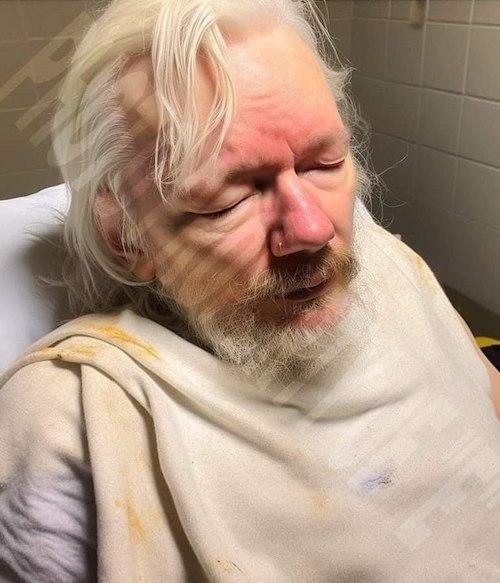


Oliver Hardy, Stan Laurel, Jimmy Durante and Buster Keaton in 1932.

Gervais
As usual, @rickygervais says it best. 😂😂#LetWomenSpeak pic.twitter.com/AbWEqySe3u
— Avi Yemini (@OzraeliAvi) March 31, 2023

Burnt tree
https://twitter.com/i/status/1641750060965715969


Support the Automatic Earth in virustime with Paypal, Bitcoin and Patreon.





